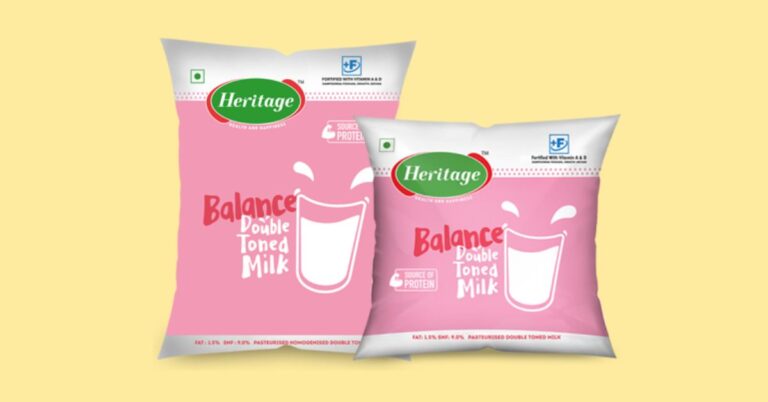Double-toned milk is a type of dairy product created by mixing whole milk with skim milk and water. This process reduces the fat content to about 1.5%, making it a healthier option for those looking to manage their fat intake without compromising on essential nutrients. The term “double-toned” refers to the milk undergoing two stages of dilution, hence the name.
Nutritional Composition of Double Toned Milk
Macronutrients
Double-toned milk offers a balanced profile of macronutrients, including carbohydrates, proteins, and fats. Each serving typically contains around 1.5% fat, significantly lower than whole milk’s fat content. Despite the reduced fat, it retains a similar protein content, making it a good source of essential amino acids.
Micronutrients
This milk variant is rich in essential vitamins and minerals. It provides a substantial amount of calcium, crucial for bone health, as well as vitamins A and D, which are often fortified in dairy products to support overall health.
Benefits of Double Toned Milk
Weight Management
Double-toned milk is an excellent option for those aiming to control their calorie intake. The reduced fat content helps in maintaining a lower calorie count per serving, which is beneficial for weight management without sacrificing the intake of vital nutrients.
Bone Health
The high calcium content in double-toned milk supports bone density and strength, making it an ideal choice for people of all ages, especially growing children and the elderly, who require more calcium.
Heart Health
With lower fat content, double-toned milk can contribute to better heart health by reducing the intake of saturated fats, which are linked to heart diseases. Its nutrient profile supports overall cardiovascular health.
Comparison with Other Types of Milk
Whole Milk vs. Double Toned Milk
Whole milk contains about 3.5% fat, making it richer and creamier compared to double-toned milk. However, the higher fat content also means more calories, which can be a concern for those managing their weight.
Skim Milk vs. Double Toned Milk
Skim milk is virtually fat-free, containing less than 0.5% fat. While it is an even lower-calorie option than double-toned milk, some people find it less palatable due to its thinner consistency.
Toned Milk vs. Double Toned Milk
Toned milk typically has around 3% fat, making it richer than double-toned milk but lighter than whole milk. Double-toned milk is an even lighter version, catering to those who prefer or need a lower fat intake.
Processing of Double-Toned Milk
Pasteurization Process
Pasteurization involves heating the milk to a specific temperature to kill harmful bacteria without affecting the nutritional content. This process ensures the milk is safe for consumption and has a longer shelf life.
Toning Process
The toning process involves adding skim milk and water to whole milk to reduce the fat content. This is done under controlled conditions to ensure consistency in fat percentage and overall quality.
Usage of Double-Toned Milk in Daily Diet
Cooking and Baking
Double-toned milk can be used in various recipes, from sauces and soups to baked goods. Its lower fat content does not significantly affect the texture and taste of the final product, making it a versatile ingredient.
Beverages
This type of milk is ideal for preparing beverages like tea, coffee, and smoothies. It provides the creamy texture desired in these drinks while keeping the fat and calorie content lower.
Dairy Products
Double-toned milk can be used to make dairy products such as yogurt and paneer. These products benefit from the milk’s nutritional profile, making them healthier options for daily consumption.
Market Availability and Brands
Popular Brands Offering Double-Toned Milk
Several dairy brands offer double-toned milk, catering to the health-conscious consumer market. Popular brands include Amul, Mother Dairy, and Nestle, among others.
Packaging and Shelf Life
Double-toned milk is available in various packaging options, including tetra packs, bottles, and plastic pouches. The packaging ensures freshness and extends the shelf life, making it convenient for consumers.
Consumer Considerations
Lactose Intolerance
Individuals with lactose intolerance may need to avoid double-toned milk, as it contains lactose. Lactose-free alternatives are available for those who need them.
Allergies and Sensitivities
People with dairy allergies should avoid double-toned milk and opt for plant-based milk alternatives. It’s important to read labels carefully to avoid adverse reactions.
Price Comparison
Double-toned milk is often priced competitively compared to whole milk and other dairy products. Its affordability makes it an accessible choice for many households.
Environmental Impact of Double-Toned Milk Production
Sustainable Practices
The dairy industry is increasingly adopting sustainable practices to reduce its environmental footprint. This includes efficient water use, waste management, and renewable energy sources.
Carbon Footprint
The production of double-toned milk, like all dairy products, has a carbon footprint. However, advancements in sustainable farming practices aim to reduce emissions and promote environmental stewardship.
Conclusion
Double-toned milk offers a balanced nutritional profile with lower fat content, making it a suitable choice for health-conscious individuals. It retains essential nutrients like calcium and vitamins, providing numerous health benefits, including weight management and improved heart health. Whether used in cooking, beverages, or dairy products, double-toned milk is a versatile and accessible option for daily consumption.
Frequently Asked Questions (FAQs)
What is double toned milk?
Double toned milk is a type of milk that has been diluted with skim milk and water to reduce its fat content to about 1.5%.
Is double toned milk good for weight loss?
Yes, due to its lower fat and calorie content, double toned milk can be beneficial for a weight management diet.
Can lactose tolerant people drink toned milk?
No, double toned milk contains lactose, which can cause issues for those with lactose tolerance.
What are the benefits of double toned milk?
Benefits include weight management, improved heart health, and maintaining strong bones due to its rich calcium content.
Which brands offer double toned milk?
Popular brands like Amul, Mother Dairy, and Nestle offer double toned milk,

1 thought on “What is Double Toned Milk?”